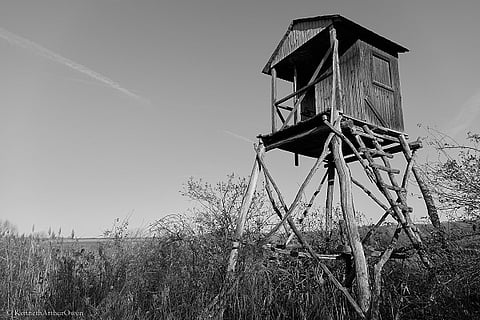Okay, I know you're ROFLing wherever you are, to see me on my knees in the middle of a humid, leech-infested forest, my body slick with sweat and insect-repellent, taking measurements of a mound of elephant dung. Don't even think of making some stupid pun about me "being in deep shit" or "finally getting my shit together" .
Anyways. I'm not doing this for the sheer fun of it, in case you're wondering. This dung-measurement thing is for calculating elephant density in an area. They explained it–in great detail, unfortunately—during the volunteer training, showing us slide after slide about the line transect something-or-the-other with a lot of math and graphs and stuff that you would have loved. Back in Bengaluru, when I boarded the bus to Bandipur to be a part of the three-day elephant census, I was half-afraid I might be the only one who showed up. As it turned out, there are a whole lot of people interested in counting elephants, and the training auditorium was packed with students, doctors, software professionals, teachers and homemakers, all listening in rapt attention. I wasn't one of them–one of those paying attention, I mean–but what I can tell you for a fact—thanks to the hand-made posters of elephant trivia that someone had helpfully sellotaped to the walls of the auditorium, illustrative pictures and all–is that elephants can recognise themselves in mirrors, do basic arithmetic, identify musical notes, communicate over long distances, understand body language. And they too mourn their dead.

